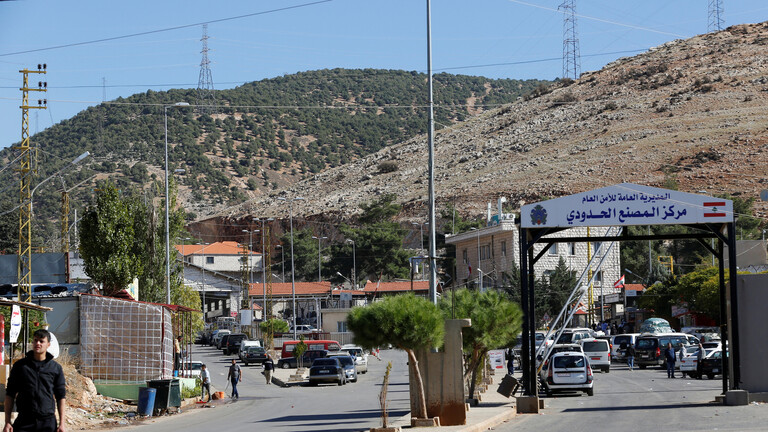The Lebanese-Syrian borders and Hezbollah’s priorities
Hanin Ghaddar/Al Arabiya/June 10/2020
حنين غدار: الحدود السورية-اللبنانية وأولويات حزب الله
Hezbollah’s control of the Syrian-Lebanese border is attracting renewed controversy in Lebanon, where cross-border smuggling has recently intensified, and abroad, with the international community discussing Lebanon’s failure to establish sovereignty over its territory in line with UNSCR 1559.
Lebanon can no longer ignore the economic repercussions of costly smuggling on its already fragile economy. As the country enters into negotiations for a bailout from the International Monetary Fund contingent on reform, controlling its borders is becoming an utmost priority for the Lebanese government.
It is the Lebanese Army’s duty to stop smuggling, arrest smugglers, and close off illegal borders. However, the recent measures it has taken appear to be superficial acts, designed as a show for the international community. The real issue is that Hezbollah is smuggling weapons and fighters from Lebanon to Syria and beyond, and vice versa. In addition to its military operations, Hezbollah has smuggled goods from Iran and Syria to sell in Lebanon. Meanwhile, fuel, US dollars, and flour, have crossed from Lebanon into Syria.
Hezbollah’s control of the borders, and the way it has used these borders to benefit Iran’s and Syria’s economy – at the expense of Lebanon’s economy – has recently been exposed and caused much uproar by activists and opposition figures. The new wave of the protests, expected to restart on June 6, will likely see this scandal placed at the center of corruption charges brought by protesters against the state, and it will implicate Hezbollah and Assad allies in Lebanon.
Last month, Lebanon’s Central Bank Governor Riad Salemeh hinted that the country has lost $4 billion a year to smuggling, at a time when Lebanon is asking the IMF for $10 billion in aid.In response, Hezbollah’s leader Hassan Nasrallah has called for “bilateral cooperation” with the Assad regime to control smuggling. A few days later, Hezbollah’s officials stated that Hezbollah will not allow the closure of illegal borders with Syria, because “Hezbollah needs to bring in weapons for the resistance.”
Despite some of the measures implemented by the Lebanese Armed Forces such the closure of some illegal crossings and a few arrests of smugglers, the issue has not been – and will not be – resolved anytime soon, at least not without a major concession from Hezbollah to the international community. Hezbollah will not be forced to cease its smuggling operations unless it is forced to do so.
This kind of concession will not be achieved without a serious maximum pressure campaign on Hezbollah itself, not on Iran and by default Hezbollah. A maximum pressure campaign on Hezbollah also means that Hezbollah’s network of allies and the business community – from all sects – needs to be put under pressure and sanctions. It also means that Hezbollah’s influence within security institutions should be weakened through using aid as leverage.
For example, US assistance to the Lebanese Armed Forces could come with conditions catered to cut Hezbollah’s influence over certain military units and figures in the army. Otherwise, Hezbollah will continue to influence Lebanon’s economic, diplomatic and security decisions, and vital issues such as border control and smuggling will never be properly addressed.
This is a game that Hezbollah and its allies are good at playing. When they are cornered, they buy time.
Today, Hezbollah’s government is cornered as the economy in Lebanon is deteriorating, and no measures have been implemented to stop this deterioration. The permission Hezbollah gave to the government to negotiate with the IMF is another way to buy time as they continue their smuggling operation along the Lebanese-Syrian borders.
It has become clear for many observers in Lebanon that receiving IMF aid seems unlikely as reforms are yet to materialize – at least not with this government. Between the IMF package that could save Lebanon, and Iran’s land bridge from Tehran to Beirut and the south of Lebanon, Hezbollah will chose Iran over Lebanon. For Hezbollah, a Venezuela scenario for Lebanon is better than cutting Iran’s route to Lebanon.
Therefore, the only solution is pressure on Hezbollah – a dual pressure that comes from both the Lebanese streets and the international community in a firm attempt to regain the political balance once Lebanon enjoyed.
*Hanin Ghaddar is the inaugural Friedmann Fellow at The Washington Institute’s Geduld Program on Arab Politics, where she focuses on Shia politics throughout the Levant. She tweets @haningdr




















